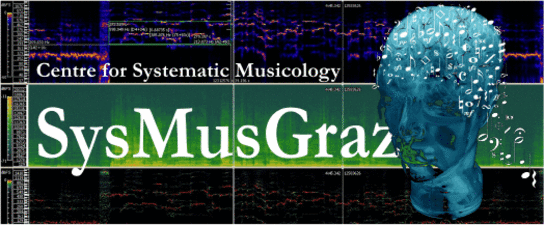About
The How and Why of Music
How and why does music do the things it does? How and why does it entertain and divert us? Bring people together and contribute to social identity? Evoke emotion and influence mood? Create atmosphere or make people want to dance? Music seems to move, even if nothing is actually moving - melodies rise and fall, tempos accelerate - how does music do that, and why?
Why do children like music so much, and how do musical activities help them acquire skills - motor, social, linguistic, cognitive? How does music motivate a musician to practice an instrument for thousands of hours? What is happening in our brains when we listen to and make music, and what effect does that have on other brain functions?
Why does music seem to speak to us, although it is not actually saying anything? What is music's role in ritual, and why does it play such an important role in practically all religious, spiritual, and magic traditions, the world over? Music seems to alter states of consciousness - does it really do that, and if so, how?
The Centre for Systematic Musicology (SysMusGraz) promotes research and teaching in all areas of systematic musicology, focusing on music psychology and cognition. The centre also promotes interdisciplinary interactions among systematic musicology, its “parent disciplines” (psychology, neuroscience, cognitive science, sociology, computer science, physics, philosophy), and other subdisciplines of musicology (ethnomusicology, historical musicology, jazz and popular music).
SysMusGraz is the leading place in Austria to study systematic musicology and one of the leading centres of its kind in Europe and the world. By citation frequency, the centre is home to Graz's internationally best-known music researchers. The centre contributes to international research in systematic musicology through publications, the creation and maintenance of infrastructures, and the promotion of synergetic collaborations among humanities, sciences and musical practice. Centre members regularly give keynote or invited lectures at international conferences and talk with the media about their research.
If you are writing a thesis or dissertation at any level (Bachelor, Master, Doctorate) in the general area of systematic musicology and considering the possibility of a research career, we can help you
- to plan, develop and present your research to increase the chance that large numbers of international colleagues will read and cite it;
- to identify research questions that many international colleagues find interesting, or for which there is growing interest; and
- to formulate tentative answers to your research questions (theses or hypotheses) that are likely to find increasing acceptance among experts in the future.
We will also give you a good grounding in empirical research methods (experimental design and statistical analysis). From us you will learn the art of writing a good empirical or theoretical paper and getting it published in a leading journal.
Contact
Office and Library
Library Opening Hours:
Wednesday: 10am - 1pm
Friday: 11am - 2pm
Only during the semester, on days when there is teaching.
Contact
Head of the Centre Prof. Dr. Richard Parncutt
Library Opening Hours:
Monday: 10-12am
Wednesday: 12am-3pm
Friday: 10-12am
In urgent cases, an appointment can also be made.





